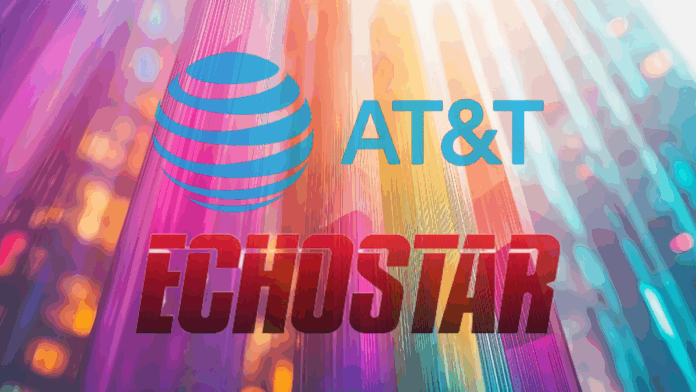MobileX founder says FCC must avoid repeating Sprint–T-Mobile US merger mistakes as spectrum changes hands
AT&T’s plan to acquire spectrum from EchoStar is reigniting debate about the U.S. mobile market’s competitiveness — and few voices are as sharp on the subject as Peter Adderton, founder of MobileX and Boost Mobile’s original architect. In an interview with RCR Wireless News, Adderton warned regulators not to repeat mistakes made during the Sprint–T-Mobile US merger, which left Dish and EchoStar struggling to play the role of a fourth nationwide carrier.
Lessons from a failed merger
Adderton traces the current situation back to the 2020 Sprint–T-Mobile US merger. Regulators approved the deal on the condition that Dish would step in as a new facilities-based competitor, acquiring Boost Mobile and various spectrum assets. Adderton argued at the time that the plan would fail — and he now points out that Dish has indeed shed millions of Boost subscribers and fallen behind in its network build-out.
According to Adderton, this deal was “smashed together.” He continued: “They all came together, not because they wanted to, not because it was a natural solution, but because they were all smashed together in absolute, massive desperation… Whenever you put together something out of desperation, this is the result.”
He added that the remedies were never viable, and that the main beneficiaries were executives and shareholders, not consumers. From his perspective, former Sprint CEO Marcelo Claure walked away with a billion dollars in T-Mobile stock, Masayoshi Son sold billions in SoftBank shares — and yet the so-called fourth carrier was left with an impossible task.
AT&T–EchoStar: Not a “slam dunk”
AT&T’s move to acquire EchoStar spectrum may look logical from a network efficiency standpoint, but Adderton sees significant regulatory hurdles. “Anyone who thinks this is a slam dunk deal is delusional,” he said. While the FCC has been clear that it wants EchoStar’s spectrum put to use, Adderton argues that the conditions matter more than the transaction itself.
“[The regulators] have the option of taking it away,” he said. Essentially, he continued, putting the spectrum in the hands of AT&T makes sense from a utilization standpoint, but not from a competitive standpoint, especially without major regulatory protections.
The fourth competitor problem
According to Adderton, the U.S. market is destined to remain a “three-carrier” system unless regulators make specific provisions for MVNOs (mobile virtual network operators) to thrive. He dismissed industry rhetoric around “hybrid MNOs” as a buzzword: “It’s a full-stack MVNO,” he said, adding that they’re not building a network, they’re divesting spectrum. “So let’s call a spade a spade,” he stated.
He believes regulators must ensure that MVNOs can access wholesale network agreements on fair terms. “Right now, the MVNO business is a one-to-one. It’s self-regulated between the MVNO and the carrier. There’s no requirement for the carrier to give us the best pricing. There’s no requirement for the carrier to make sure we’re successful. They’re the judge, juror, and executioner,” he said.
Adderton is also skeptical that cable companies — often floated as a fourth competitor — can play the role. Their mobile services are restricted geographically, tethered to cable bundles, and still rely heavily on the major carriers’ networks. “They’re not a fourth competitor… at least 80% of their revenue goes to the carrier… [and] nobody likes them, let’s be honest,” he quipped.
A generational shift — if regulators step up
Despite his criticisms, Adderton sees a rare opportunity for regulators to reset the mobile landscape. With EchoStar near collapse, he argues, the FCC and DOJ can shape a long-term structure that ensures consumer benefit rather than shareholder windfalls.
“This is a generational change,” he said. “There’s no more changes after this. If regulators don’t learn from the past, then the industry is in serious trouble.”
For Adderton, the EchoStar spectrum sale is more than a balance-sheet transaction — it is a test of whether U.S. regulators can enforce real competition. “It always seems to be that the regulators [want] to protect the consumers, but all they end up doing is protecting the shareholders,” he said.
AT&T’s perspective
For AT&T, the spectrum acquisition aligns with the telco’s long-term strategy of building an integrated broadband footprint that combines fiber, fixed wireless, 5G, and satellite. The company has already passed 30 million fiber locations and invested more than $145 billion between 2020 and 2024, underscoring its intent to maintain leadership in advanced connectivity. Executives argue that additional spectrum will support both nationwide coverage and the expansion of fixed wireless access, where AT&T sees opportunities to compete directly with cable operators.
Still, as Adderton cautions, the ultimate impact depends on how regulators structure the deal. Whether it becomes another missed opportunity or a true reset for competition will be decided not in boardrooms, but at the FCC and DOJ.

